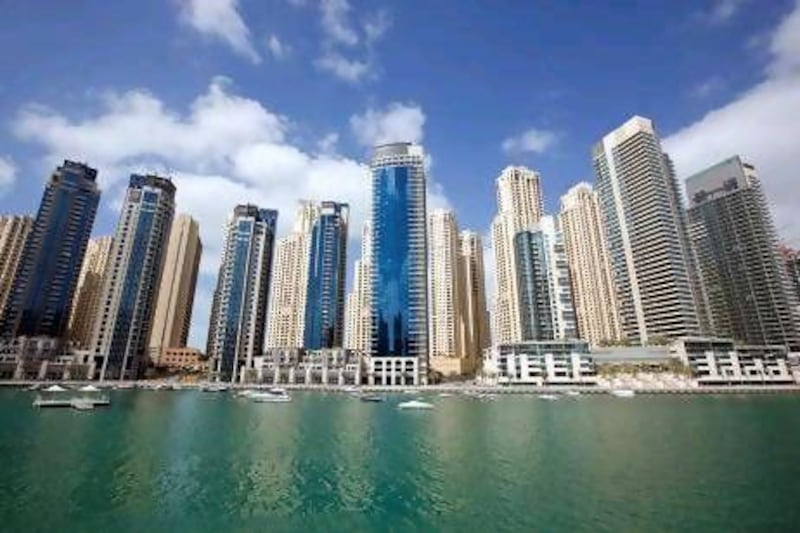DUBAI // Homeowners are fed up with an endless stream of phone calls and emails from persistent brokers urging them to sell their property or demanding information about it.
In reaction, some residents have approached developers to ensure that their personal contact details remain private.
"It's a barrage of phone calls and emails that don't end even when I say I don't want to sell the property," said Farhana Ismaili, a Pakistani expatriate who owns an apartment in Dubai Marina. "How does such detailed information about my property get out? I've called my building security and the developer, but the calls don't stop."
Residents have voiced security and privacy concerns since agents often have details of their property. They attribute the rise in cold calls to brokers trying to shore up their databases of property available on the market.
The British resident John Christensen receives at least four calls per week, daily emails about two properties he owns in the Green Community and Jumeirah Beach Residence, and an apartment he sold in Abu Dhabi years ago.
"They ask a lot of questions," he said. "They want to know how much the Abu Dhabi property sold for. When I say it's not any of their business, they say they need to know to assess the prices and market. They do get a bit pushy."
These calls coupled with others from telemarketers pushing loans are a growing nuisance, homeowners said.
"Twice a week I get calls from financial advisers and thrice or four times a week from the property guys, so it is irritating," Mr Christensen said. "They seem to know the size of the property and the location. Some are fishing, others are very specific."
Unsolicited telemarketing for financial services is widespread in the Emirates despite the 2011 Central Bank ban on UAE banks from marketing products through such calls.
Homeowners have a right to the privacy of their personal data under the UAE Constitution and the UAE Penal Code, said Takamasa Makita, a senior associate at the legal firm Clyde & Co.
According to Article 379 of the penal code, if a company that "is entrusted with a secret" discloses it in cases not permitted by the law, or an employee uses it for his own or another person's advantage, it is a punishable offence for which an employee can face at least one year in prison and a fine of Dh20,000.
"The penal code does not specify what is a 'secret'," said Mr Makita. "However, confidential personal information should amount to such. The punishment will depend on the seriousness of the offence."
There are no known cases of prosecutions under the law regarding the misuse of homeowners' data.
Residents insist that homeowners' lists are available and can be procured by property agents.
"It is a ridiculous bombardment of calls," said Tony Lewis, the managing director of a public relations firm who lives in the Green Community.
"It needs to stop because it is just harassment. They try to get a stock of properties by reaching out to homeowners. Someone has obviously got their hands on a database and list of a developer."
A few brokers confirmed they had lists from different areas.
"Yes, these lists are available," said Krish, a broker who declined to give his full name. "And once they have your number it's difficult to get rid of them."
In newspaper and internet job advertisements for property agents, cold-calling skills are among the most frequently listed hiring requirements. Also high up on the list are experience in real estate, confident negotiation skills and computer literacy.
The calls are widespread in certain areas, including Jumeirah Beach Residences and Downtown, which are currently in high demand.
Developers insisted they maintained high confidentiality standards. Emaar and Union Properties, for example, both said they respect do not share data with any third parties.
"Emaar does not share information about its community homeowners to any third party, and has strict internal confidentiality and security policies in place," said a company spokeswoman for Emaar.







